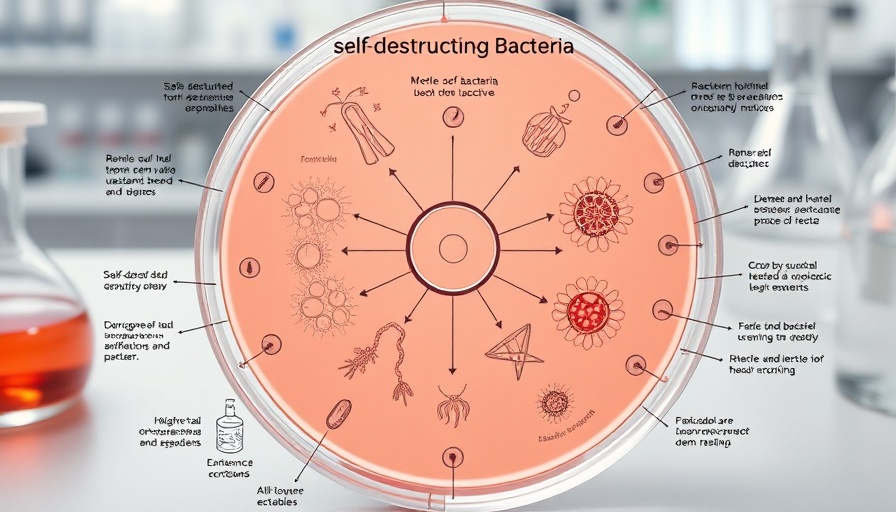
Innovative Self-Destructing Bacteria: A Game Changer for TB Vaccines
As tuberculosis (TB) continues to be a significant global health threat, scientists are on the frontlines of developing improved vaccines. Recent research from Weill Cornell Medicine reveals an exciting advancement: self-destructing bacteria that may revolutionize how we combat this infectious disease.
Understanding Tuberculosis: A Persistent Threat
TB is caused by the bacterium Mycobacterium tuberculosis and is primarily transmitted through the air. While efforts have reduced TB instances in developed countries, it still claims over a million lives annually around the world. The traditional vaccine, BCG (Bacillus Calmette-Guérin), has offered limited protection, particularly in adults, leading to an urgent need for more effective solutions.
What’s New? The Dual-Lysin Kill Switch
The research team has engineered two new strains of mycobacteria with what they call “kill switches.” These mechanisms enable the bacteria to deactivate after stimulating an immune response. This approach not only aims to maintain the vaccine’s effectiveness but also enhances safety, avoiding the risks of persistent live bacteria in the body. By employing lysins—enzymes that can cause bacterial self-destruction—the researchers can exert controlled immunization with additional safety.
Collaborative Research for Stronger Solutions
Working alongside experts from the University of Pittsburgh and the NIH, the Weill Cornell team referenced findings from previous studies that indicated intravenous delivery of high doses of BCG could enhance immunity in monkeys. This collaborative spirit is vital, as it combines expertise from multiple institutions to tackle a shared health crisis.
Better Safe Than Sorry: Reassessing IV Vaccination
Dr. Dirk Schnappinger and his team aimed to make intravenous (IV) administration of BCG safer by developing this self-destructing variant. The results have been promising: studies show that this engineered vaccine can lead to robust immune responses while effectively preventing infection in test subjects without the risk of prolonged bacterial presence. With over 90% of immunized macaques displaying no inflammation post-infection, there’s potential for translating this success to human trials.
A Bright Future for Vaccine Development
This research points to a future where TB vaccines not only save lives but are equipped with in-built safety features. Coupled with a growing global emphasis on vaccine feasibility and effectiveness, the kill switch demonstrates a forward-thinking, safe approach amidst long-standing challenges faced in vaccine development and implementation.
Your Role in Addressing Global Health Issues
As these innovative vaccine strategies unfold, we can each play a part in combatting diseases like TB. Engaging with medical discussions, supporting public health initiatives, and remaining informed about vaccine developments are ways to contribute positively. Understanding and sharing knowledge leads us toward solutions that can ensure healthier futures for all.
The promise of self-destructing TB vaccines represents hope not just for vulnerable populations but offers a glimpse into the future of biotechnological advances. Embracing these changes might one day lead us closer to eradicating TB entirely.
 Add Row
Add Row  Add
Add 


Write A Comment